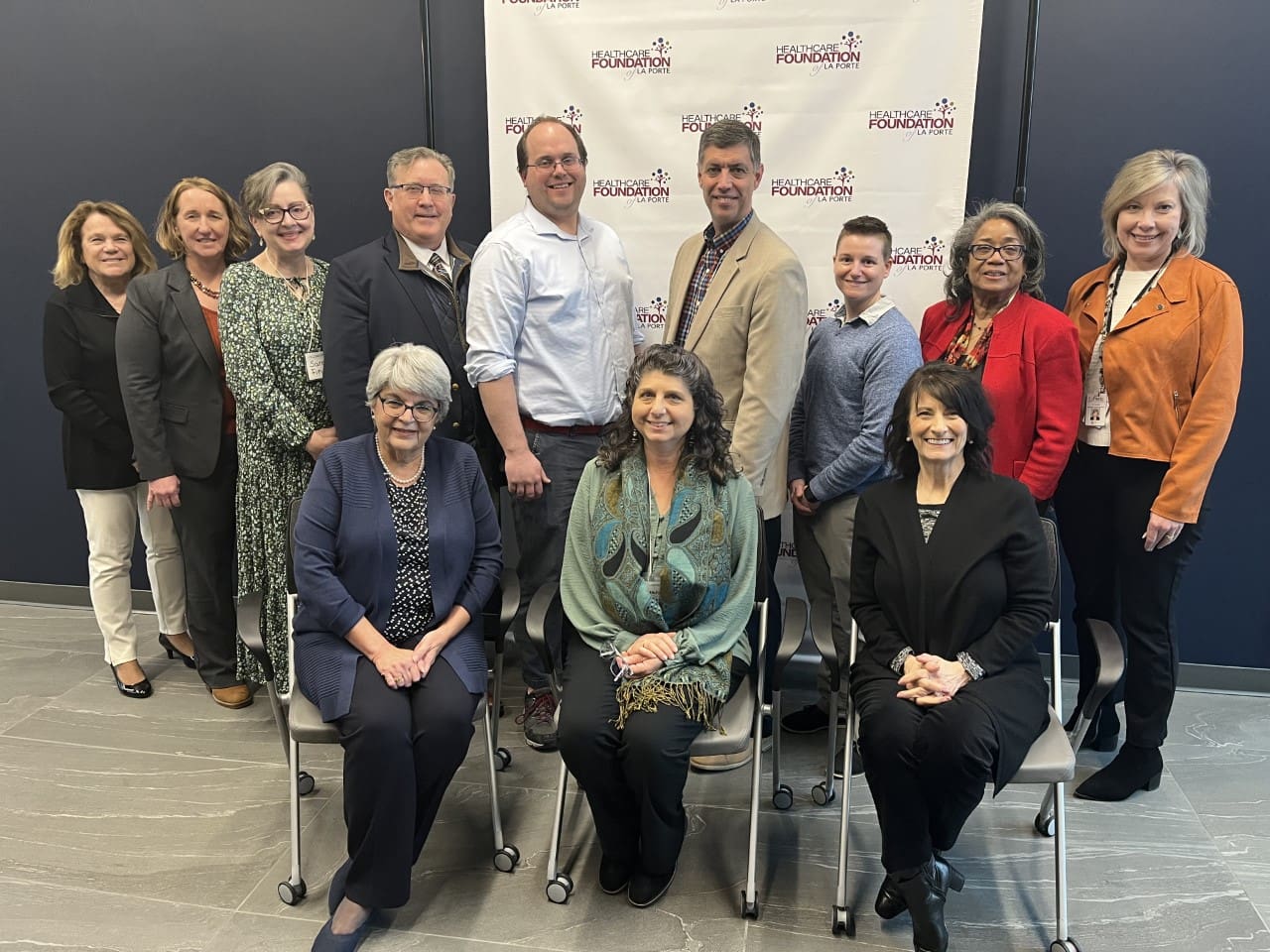At an event bringing forth evidence-based prevention solutions from across Indiana, Healthcare Foundation of La Porte (HFL) hosted a Partners in Prevention (PiP) celebration at their Conference & Learning Center on Friday, March 3.
Maria Fruth, CEO, welcomed representatives from schools throughout La Porte County to celebrate their school-based prevention programming to combat substance use disorder, in collaboration with successes from schools in Indianapolis and Lafayette. Speakers from schools across Indiana shared overall learnings, student impact, and plans for sustainability.
In 2019, all schools in La Porte County were invited by HFL to apply for grant dollars to help them plan and implement evidence-based prevention programs. With a total investment of $2.8 million, 11 grantees representing six public schools, four private schools, and 1 charter school were awarded with funding to implement evidence-based prevention programs from January 2019 through July 2022. During the three-year grant period 363 implementers were trained and eight evidence-based programs were implemented, with Second Step and Botvin LifeSkills being the most popular. In year three, 13,099 students were receiving PiP curriculum via age-appropriate programming.
Representatives from La Porte Community School Corporation (LPCSC), Michigan City Area Schools (MCAS), New Prairie United School Corporation (NPUSC), and La Lumiere School were present to share achievements and celebrate the impact of the three-year grants; representatives from other area schools had planned to attend but were unable to join in person due to the weather.
State-wide Celebration
In addition to HFL’s Partners in Prevention grantees, representatives from North Central Health Services’ Resilient Youth Initiative and Richard M. Fairbanks Foundation’s Prevention Matters joined the celebration virtually via Zoom.
Resilient Youth Initiative served the Indiana counties of Benton, Warren, Fountain, Montgomery, Tippecanoe, White, Carroll, and Clinton, reaching almost 20,000 students across 1,400 implementation grantees in 19 school corporations and 89 individual schools. North Central Health Services invested a total of $6.2 million from fall 2018 – July 2022.
Prevention Matters served Marion County, Indiana, reaching 83,400 students through 27 implementation grantees, and 159 schools. Richard M. Fairbanks Foundation invested a total of $13.5 million from February 2018 – July 2022.
Attendees at each satellite location viewed a video message from Dr. Katie Jenner, Indiana Secretary of Education, recognizing the hard work and dedication of these implementers and funding provided by the three Indiana-based entities.
Lessons Learned
Those in attendance at HFL shared the importance of embedding prevention and instruction into academic content. Several implementers remarked that a culture change was necessary from the top down to create impact.
Dr. Barbara Eason-Watkins, superintendent of Michigan City Area Schools (MCAS), stated that she has seen an increase in student confidence, with more students using their voices to share needs with adults.
HFL Special Projects Manager Mary Wellnitz supported PiP throughout its entirety and identified several key lessons learned about effective prevention program implementation. Education Development Center (EDC) provided technical assistance and support to the schools and RTI International measured the impact of these initiatives across the three years. Wellnitz shared examples she heard of students reminding parents to belly breathe or use “I messages” – evidence that the lessons learned from PiP are becoming more embedded in the culture.
A staff member from the Tippecanoe School Corporation shared on Zoom that prevention programs like these are effective if they’re thought of more as a framework; she emphasized that the change is slow and at times frustrating, but it is real. She also referenced the powerful idea that adults in the district need to be the thermostats, not the thermometers, controlling the temperature in the school districts rather than reacting to it.
Implementers across the three areas of the state echoed the same ideas that leadership buy-in and example-setting were a must from superintendents, principals, counselors, parents, teachers, bus drivers, cafeteria workers—everyone in the school community!
The Effects of COVID-19
The La Porte County opioid study, funded by HFL in spring 2018, provided recommendations for prevention programming. Based on those recommendations, HFL sought evidence-based programs and ultimately decided to follow the model from the Richard M. Fairbanks Foundation, who kindly permitted HFL to adopt the main components of their initiative.
Planning and the first year of implementation began before COVID-19, but the pandemic and the necessary educational changes proved to be a timely occurrence in that Partners in Prevention enabled teachers to meet children where they were; mental health needs became more obvious for people of all ages.
Implementers across all initiatives remarked that students improved their knowledge and competence of social emotional health. Additionally, the implementers themselves recognized improved self-awareness, improved connection with their students, and improved awareness of students’ emotional states and mental health needs.
What’s Next for PiP Grantees
RTI International’s report on results and impact will be available soon and shared with school leaders. Implementers will receive summary reports that highlight their contribution to PiP as well as recommendations to support continued program implementation. The celebration event concluded with discussion of sustainability, how implementers plan to continue the forward momentum. Those in attendance were thrilled to share that 100% of PiP grantees plan are continuing to offer the Partners in Prevention programming.

